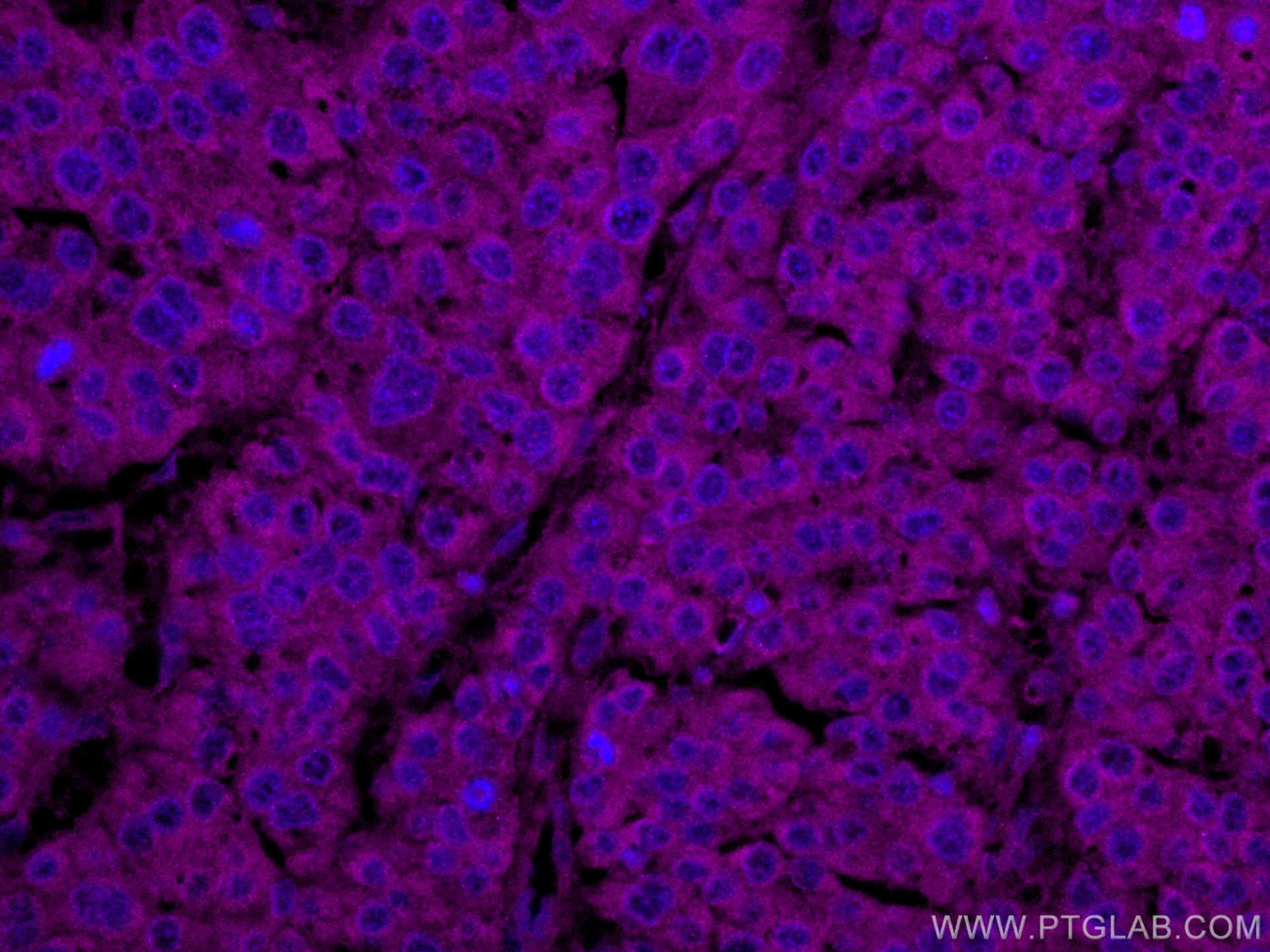- Phare
- Validé par KD/KO
Anticorps Monoclonal anti-NCAPH
NCAPH Monoclonal Antibody for IF-P
Hôte / Isotype
Mouse / IgG1
Réactivité testée
Humain
Applications
IF-P
Conjugaison
CoraLite® Plus 647 Fluorescent Dye
CloneNo.
3D2F11
N° de cat : CL647-67655
Synonymes
Galerie de données de validation
Applications testées
| Résultats positifs en IF-P | tissu de cancer du foie humain, |
Dilution recommandée
| Application | Dilution |
|---|---|
| Immunofluorescence (IF)-P | IF-P : 1:50-1:500 |
| It is recommended that this reagent should be titrated in each testing system to obtain optimal results. | |
| Sample-dependent, check data in validation data gallery | |
Informations sur le produit
CL647-67655 cible NCAPH dans les applications de IF-P et montre une réactivité avec des échantillons Humain
| Réactivité | Humain |
| Hôte / Isotype | Mouse / IgG1 |
| Clonalité | Monoclonal |
| Type | Anticorps |
| Immunogène | NCAPH Protéine recombinante Ag27748 |
| Nom complet | non-SMC condensin I complex, subunit H |
| Masse moléculaire calculée | 741 aa, 83 kDa |
| Numéro d’acquisition GenBank | BC024211 |
| Symbole du gène | NCAPH |
| Identification du gène (NCBI) | 23397 |
| Conjugaison | CoraLite® Plus 647 Fluorescent Dye |
| Excitation/Emission maxima wavelengths | 654 nm / 674 nm |
| Forme | Liquide |
| Méthode de purification | Purification par protéine G |
| Tampon de stockage | PBS with 50% glycerol, 0.05% Proclin300, 0.5% BSA |
| Conditions de stockage | Stocker à -20 °C. Éviter toute exposition à la lumière. Stable pendant un an après l'expédition. L'aliquotage n'est pas nécessaire pour le stockage à -20oC Les 20ul contiennent 0,1% de BSA. |
Informations générales
Non-SMC condensin I complex subunit H (NCAPH) is one of the three non-SMC subunits in condensin I, which belongs to a recently defined superfamily of proteins termed kleisins. Another two non-SMC subunits, CAP-D2 and CAP-G, share a highly degenerate repeating motif known as HEAT repeat. Some studies show that each subunit is essential for viability and plays an important role in mitotic chromosome architecture and segregation. In recent years, researchers found that the high expression of NCAPH was associated with poor prognosis in patients with non-small cell lung cancer and prostate cancer. Downregulation of NCAPH inhibited the proliferation, migration, and invasion of several cancer cells significantly. Moreover, NCAPH was involved in the regulation of mature chromosome condensation and DNA damage. These data suggest that NCAPH may be a key carcinogen involved in the development and progression of human malignant tumors. ( PMID: 28300828, PMID: 33311486 )
Protocole
| Product Specific Protocols | |
|---|---|
| IF protocol for CL Plus 647 NCAPH antibody CL647-67655 | Download protocol |
| Standard Protocols | |
|---|---|
| Click here to view our Standard Protocols |


